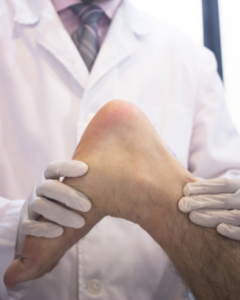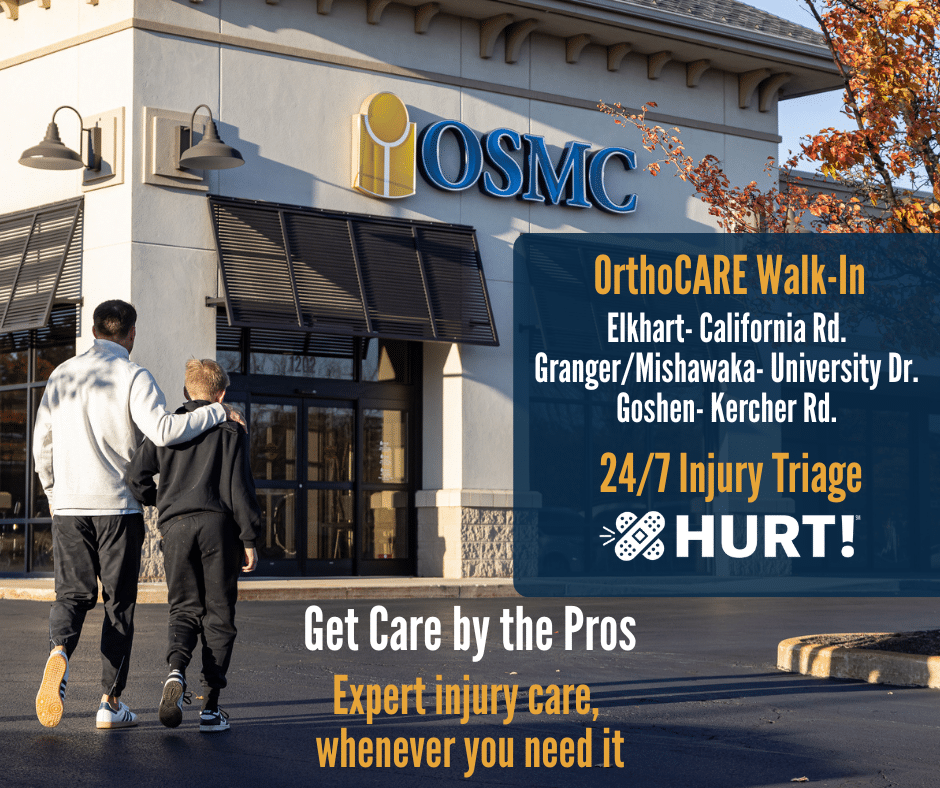
Taking the step to see an orthopedic surgeon can feel overwhelming, especially if you don’t know what to expect. If you’re preparing for your first visit to an orthopedic surgeon in South Bend, understanding the process can help ease your concerns and ensure you get the most out of your appointment. At Orthopedic & Sports Medicine Center (OSMC), we’re dedicated to making your visit as smooth and informative as possible. Here’s what you need to know.
Why You Might See an Orthopedic Surgeon in South Bend
Orthopedic surgeons specialize in diagnosing and treating issues related to the musculoskeletal system, including bones, joints, muscles, ligaments, and tendons. Common reasons for scheduling a visit include persistent joint pain, injuries, limited mobility, or chronic conditions like arthritis. Whether seeking relief from pain or exploring treatment options for an injury, your first visit is the first step toward improved health and mobility.
Preparing for Your First Orthopedic Appointment
To make the most of your first visit, it’s helpful to come prepared. Start by gathering necessary information, such as:
Medical History: Include current medications, past surgeries, and ongoing health conditions.
Symptoms and Concerns: Make note of when your symptoms began, their severity, and any activities that worsen or relieve them.
Previous Imaging or Test Results: If you’ve had X-rays, MRIs, or other diagnostic tests, bring those records along.
Wearing comfortable clothing that allows easy access to the affected area can also help facilitate a thorough examination.
What to Expect During Your Appointment
Your first visit to an orthopedic surgeon in South Bend typically includes a detailed consultation, physical examination, and possibly diagnostic tests. Here’s a breakdown of what to expect:
1. Initial Consultation
The surgeon will review your medical history and ask questions about your symptoms. Be prepared to describe your pain or discomfort in detail, including its location, intensity, and how it affects your daily life. This conversation helps the surgeon understand the root cause of your issue and determine the best course of action.
2. Physical Examination
Next, the surgeon will perform a physical examination, focusing on the affected area. They may assess your range of motion, strength, and reflexes to gain further insight into the problem. This hands-on evaluation is a crucial step in forming an accurate diagnosis.
3. Diagnostic Testing
Your orthopedic surgeon may recommend additional diagnostic tests, such as X-rays, MRIs, or CT scans if necessary. Many practices, including OSMC South Bend, offer on-site imaging for your convenience, allowing quicker results and more streamlined care.
4. Discussion of Treatment Options
After reviewing your symptoms and test results, the surgeon will explain their findings and discuss potential treatment options. These may include non-surgical approaches like physical therapy, injections, or medications and surgical options if needed. The goal is to develop a personalized treatment plan that aligns with your needs and lifestyle.
What Should I Ask My Surgeon?
Feel free to ask questions about your diagnosis, treatment options, recovery timeline, and any potential risks or benefits of the recommended treatments. At OSMC South Bend, we encourage open communication to ensure you feel informed and confident.
Schedule Your First Visit Today At OSMC
If you’re ready to address your orthopedic concerns in the South Bend, Indiana area, don’t wait. Contact OSMC today to schedule your first appointment. From the moment you walk through our doors, you’ll experience the expert care and attention you deserve.



